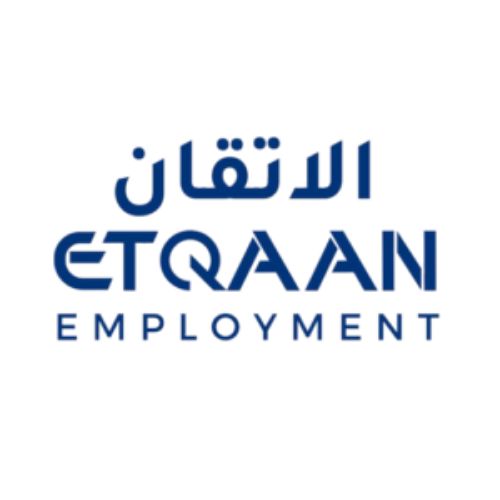In today’s digitally connected world, the construction industry is rapidly evolving. Among the most in-demand roles is the quantity surveyor (QS)—a cost consultant responsible for ensuring building projects stay within budget and comply with financial and legal standards. With remote work becoming the norm, many professionals now ask: “How can I become a certified online quantity surveyor?”
This guide breaks down everything you need to know—step by step—to launch your career as a certified online quantity surveyor, from education to certifications and building a successful remote practice.
🏗️ What Is a Quantity Surveyor?
A quantity surveyor manages all financial aspects of construction projects. From cost planning and tendering to contract administration and final accounts, QS professionals help ensure project profitability and compliance.
Key responsibilities include:
- Estimating construction costs
- Preparing Bills of Quantities (BOQ)
- Monitoring project budgets
- Managing contracts and legal documentation
- Assessing variations and payment claims
As an online QS, these tasks are completed remotely using cloud-based tools, digital blueprints, and virtual collaboration platforms.
🎯 Step 1: Understand the Role and Required Skills
Before you begin your journey, it’s essential to understand what the role demands. Successful quantity surveyors possess both technical knowledge and soft skills.
Must-have skills:
- Strong mathematical and analytical abilities
- Excellent communication (especially written)
- Attention to detail and accuracy
- Proficiency in tools like AutoCAD, CostX, PlanSwift, and Excel
- Understanding of building construction and contract law
For online QS work, you’ll also need:
- High digital literacy
- Good time management
- Familiarity with cloud collaboration tools like Slack, Trello, Zoom, etc.
🎓 Step 2: Pursue a Relevant Degree
Most QS roles require a Bachelor’s degree in a construction-related field. Look for accredited programs that cover construction cost management, contracts, and project planning.
Recommended degrees include:
- BSc in Quantity Surveying
- BSc in Construction Management
- BSc in Civil Engineering or Architecture (with QS electives)
Top institutions offering QS degrees:
- RICS-accredited universities (UK)
- University of Cape Town (South Africa)
- Curtin University (Australia)
- Heriot-Watt University (Online programs available)
🎓 Tip: If you already have a degree in a different field, consider a conversion course or postgraduate diploma in Quantity Surveying.
📜 Step 3: Gain Professional Certification
To become a certified quantity surveyor, you’ll need accreditation from a recognized professional body. This adds credibility to your profile and makes you more competitive—especially in the online space.
Top certifications for QS professionals:
| Certification | Organization | Region |
|---|---|---|
| MRICS (Member) | RICS – Royal Institution of Chartered Surveyors | Global |
| PMP (optional for project managers) | PMI – Project Management Institute | Global |
| CQS (Certified Quantity Surveyor) | AIQS – Australian Institute of Quantity Surveyors | Australia |
| PQS (Professional Quantity Surveyor) | CIQS – Canadian Institute of Quantity Surveyors | Canada |
| FRICS (Fellowship) | RICS | Advanced Level |
Each body has different requirements but generally involves:
- A relevant degree
- Several years of work experience
- Professional assessment or APC (Assessment of Professional Competence)
- Continuing Professional Development (CPD)
✅ Pro Tip: Start as a student or associate member while you study or gain experience, then upgrade as you grow.
🛠️ Step 4: Build Hands-On Experience
No certification can replace practical experience. Try to gain 2–5 years of on-site or consultancy-based experience in quantity surveying or cost management.
How to gain experience:
- Apply for internships with construction firms
- Join a consultancy as a junior QS
- Work under a chartered surveyor
- Volunteer for non-profits managing small construction projects
Document everything you do—this will help when applying for certifications like RICS or CIQS.
💻 Step 5: Learn Digital QS Tools and Software
As an online QS, your toolkit is everything. Invest time in mastering the most widely used quantity surveying and estimating software.
Recommended tools include:
- CostX – For 2D and 3D BIM-based cost estimation
- Bluebeam Revu – For PDF takeoffs and markup
- PlanSwift – Takeoff and estimation software
- AutoCAD – Drawing and plan reading
- MS Excel / Google Sheets – For budgeting and cost plans
- Project management tools like Asana, Trello, and Monday.com
Also, ensure you’re comfortable working with:
- Dropbox or Google Drive (for file sharing)
- Zoom or Microsoft Teams (for virtual meetings)
- Slack or email for client communication
🌐 Step 6: Set Up Your Online Practice or Freelance Profile
Once you’re certified and experienced, it’s time to go online. You can either join a remote quantity surveying firm or become a freelance QS.
Where to find online QS jobs:
- Upwork, Freelancer, and Fiverr – Build your portfolio with small gigs
- LinkedIn – Connect with architects, developers, and contractors
- RICS and CIQS job boards – Apply for contract roles or international jobs
- Remote construction consultancies – Offer your services to existing firms
Steps to build your profile:
- Create a professional CV and portfolio
- Launch a simple website or blog (to share insights and services)
- Offer BOQ samples or case studies
- Collect client testimonials and references
📈 Step 7: Continue Learning and Upskilling
Construction standards, building materials, and QS software are constantly evolving. As a professional, it’s vital to stay updated.
How to upskill:
- Attend RICS webinars or local CPD events
- Join QS forums and communities
- Subscribe to industry magazines like QS News, The Construction Index, or Construction Week
- Take short online courses on platforms like Coursera, LinkedIn Learning, or Udemy
Staying informed keeps you ahead in a competitive digital market.
🧭 Final Words: Your Path to Online QS Success
Becoming a certified online quantity surveyor is a rewarding career path with global demand. It gives you the freedom to work remotely, set your own schedule, and engage with projects worldwide. But it also requires commitment—through education, certification, experience, and ongoing learning.
If you’re ready to embrace both the traditional rigor of quantity surveying and the flexibility of online work, the opportunities are endless.





